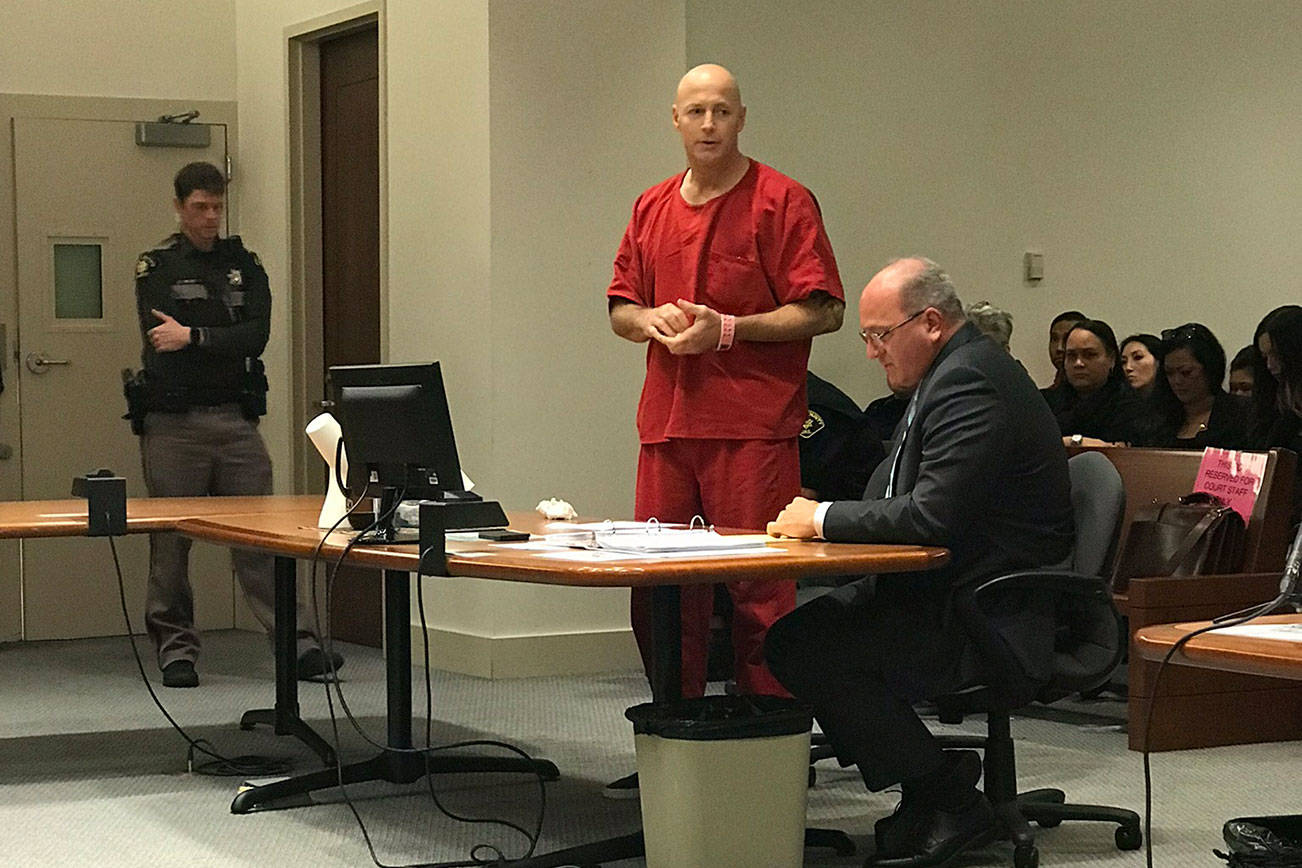• King County wants to expand capacity at the Cedar Hills Regional Landfill in Maple Valley to take waste from the county and its 37 partner cities.
Pat McLaughlin, director of the King County Solid Waste Division, told the Kent City Council on Aug. 20 that the 920-acre landfill will reach capacity by 2028. The landfill currently receives about 2,800 tons of garbage per day (or more than 100 truckloads). Due to population growth, forecasts show daily dumping increasing to 5,000 tons per day.
Executive Dow Constantine has forwarded a Solid Waste Comprehensive Plan to the King County Council with three long-term disposal options—including his recommendation that the landfill, which opened in the mid-1960s, expand capacity. The cost of redesigning the landfill to take more waste is $241 million, with an annual operating expenses of $29 million. The other options are exporting waste out of the county via rail, which would cost $5 million initially and $72 million annually, and building a waste-to-energy (i.e mass burn) facility somewhere in the county, which would likely cost $1.8 billion and $72 million annually.
A Kent resident with a 32-gallon waste container now pays $18.56 per month. To pay for an expanded Cedar Hills landfill, that would likely increase to about $19.30 per month in 2019 and continue to go up for the next nine years for a total jump of about $9.20 per month to pay for the redesign.
The proposal will go to the county council for approval, possibly before the end of this year. Each city within the county will then vote on the plan. If the proposal to expand the landfill’s capacity were approved, the redesign would begin in 2019. — Kent Reporter
• On Aug. 28, authorities arrested Pradyumna Kumar Samal, 49, the CEO of two Bellevue-based information technology firms, relating to a multi-year visa-fraud scheme that allegedly exploited foreign workers and defrauded the U.S. government.
According to court documents, Samal, a citizen of India, began his visa-fraud scheme in April 2014, and fled the country shortly after the charges were filed. He was arrested at Sea-Tac International Airport as he exited an international flight. Samal’s two companies filed visa petitions for non-immigrant workers to work as software development engineers in the United States. The companies supposedly provided employees for major firms, but have been under investigation since 2015 for fraud related to false visa petitions and fabricated supporting documents.
The system was described in the criminal complaint filing as a “bench-and-switch,” where documents and signatures were forged—at the direction of Samal—to approve the visa applications of foreign nationals before local firms had actually agreed to hire the workers. These people were then “benched” by getting left unpaid until firms actually took them on. Samal’s companies brought in nearly 200 workers with forged applications and forced them to pay a partially refundable “security deposit” of up to $5,000 for the visa filings, even if they weren’t assigned to specific companies or provided an income.
Samal faces visa fraud charges, which are punishable by up to five years in prison and a $250,000 fine. His first court appearance was Aug. 29 in U.S. District Court of Seattle. — Bellevue Reporter
• Federal Way Mayor Jim Ferrell announced at a Sept. 4 city council meeting that the city will cut ties with South King County’s regional jail due to the rising cost of jailing inmates.
Since 2009, Federal Way had been a part of a seven-city interlocal agreement with the South Correctional Entity (SCORE) regional jail in Des Moines to help save money; Burien, Auburn, SeaTac, Tukwila, Renton, and Des Moines were also part of the facility-sharing agreement.
Withdrawing from the arrangement could save the city around $2 million annually. Instead, Federal Way would use facilities like the King County Jail, the Yakima Jail, and Nisqually Jail, all of which cost under $200 per bed on a daily basis. Currently, Federal Way is paying SCORE $260 per bed daily.
“By withdrawing from SCORE and [utilizing] other jail facilities, the projected annual jail expenditures will be $4,330,300,” a report from Federal Way Police Chief Andy Hwang reads. The police chief also told the council at the Sept. 4 meeting that the city’s “financial burden” from SCORE are “unsustainable” if Federal Way were to remain in the agreement.
While the Federal Way City Council voted to leave the inter-local agreement at the Sept. 4 meeting, the city will still be required to pay $950,000 annual for SCORE’s capital construction costs for the next 21 years. — Federal Way Mirror
• To battle the ongoing opioid epidemic, the Muckleshoot Tribe plans to establish a new clinic in Auburn in the coming months and offer the most cutting edge addiction treatment to the broader regional community.
Known as the We Care Clinic, the new 11,990-square-foot facility at 3320 Auburn Way N. will be fully funded by the tribe and will offer medication-assisted treatment (MAT), which melds FDA-approved medication and extensive behavioral health counseling for individuals and groups. The move comes after the tribe experienced great success with similar clinics on the reservation
“We do this today, we do this now, we have expertise in this, we are recognized nationally for what we do with our opioid treatment in our clinics on the reservation,” Joe Olujic, representing We Care Clinics, told Auburn city leaders at a recent meeting.
“We see the people suffering from this addiction, see them in front of our grocery stores, on street corners, we see them at the mall, we see them throughout our community on a daily basis. This treatment process will help those people get back into the workforce, off opioids, and not have that desire and need to have those opioids moving forward,” Olujic added. –– Auburn Reporter








